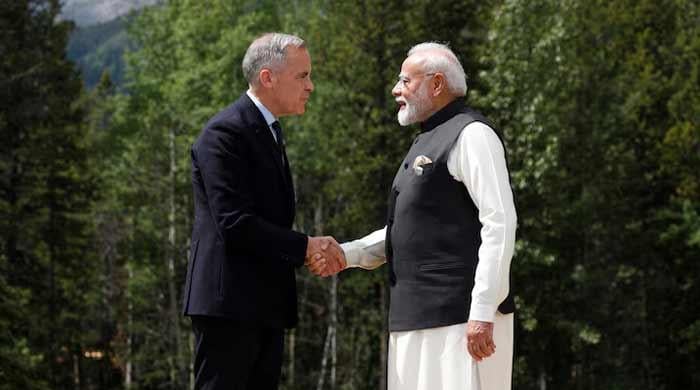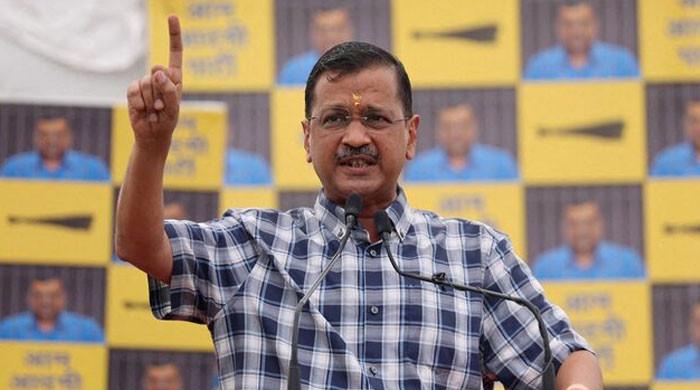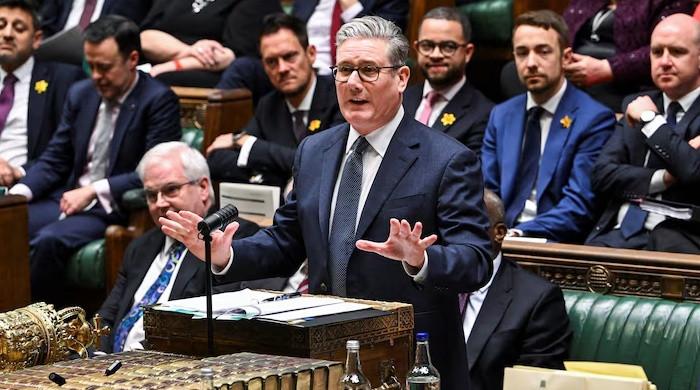EU nations reopen borders to fellow Europeans but China battles new outbreak
Belgium, France, Germany, Greece and Ukraine were among those lifting border restrictions on Monday
June 15, 2020

A raft of EU nations reopened their borders to fellow Europeans on Monday after months of coronavirus curbs, but China was battling a new outbreak that has stoked fears of a second wave.
As caseloads have declined in recent weeks across many parts of Europe, governments have been keen to ease painful lockdowns that have saved lives but devastated economies and wearied confined populations.
Belgium, France, Germany, Greece and Ukraine were among those lifting border restrictions on Monday, while shops and outdoor attractions in England were set to welcome their first customers since March and in Paris cafes and restaurants were allowed to fully reopen.
"We're desperate about tourists, we need them and we want them. If we don't have the people, how will we survive," says Michalis Drosos, who works in a souvenir shop in Fira, capital of the Greek island of Santorini.
However, the pandemic is gathering pace in Latin America, and Iran and India have reported worrying increases in deaths and infections — adding to concern over challenges the world will face in the long fight against COVID-19.
China, where the virus emerged late last year, was the first country to implement extreme restrictions on movement early this year, forcing local transmission down to near-zero as the crisis hammered the rest of the world.
But health officials on Monday reported 75 cases of the respiratory illness in Beijing where the fresh cluster has been linked to a wholesale food market.
Streams of people queued in a Beijing stadium as mass testing was carried out, and a strict lockdown was extended across 21 Beijing neighbourhoods.
US reports lowest daily toll
More than 430,000 people worldwide have died from COVID-19, nearly halfway through a year in which countless lives have been upended and the global economy ravaged by the crisis.
The United States — by far the hardest-hit country with more than 115,700 recorded fatalities — on Sunday reported its lowest 24-hour death toll since its infection rate peaked in mid-April.
President Donald Trump's administration has noted that some states have seen new flare-ups, but insists there will be no shutdown of the economy even if a new wave arises.
But stock markets tumbled again on Monday on fears that an upsurge of infections could put the brakes on the easing of lockdowns and dash hopes of economic recovery.
'Micro-outbreaks inevitable'
The Middle East's worst-hit country, Iran, reported an uptick on Sunday, recording more than 100 new virus deaths in a single day for the first time in two months.
Surging infections in India have highlighted the precarious state of its healthcare system, and more than 1,000 new cases are being reported each day in the capital alone.
Mortuaries in New Delhi are overflowing with bodies and cemeteries and crematorium staff say they cannot keep up with the backlog of victims.
There have also been two new outbreaks in Rome, with 109 infections including five deaths diagnosed at a hospital and 15 cases detected at a building inhabited by squatters.
"It means the virus hasn't lost its infectiousness, it isn't weakening... we shouldn't let down our guard," World Health Organization deputy director Ranieri Guerra told journalists.
"Such micro-outbreaks were inevitable, but they are limited in time and space. And today we have the tools to intercept them and confine them."
'It's going to be a party'
Despite fears over fresh clusters, many countries are making moves towards semi-normality.
In Paris, restaurant and cafe owners were cheering after the government said they could once again open their dining rooms, three months after being shut to blunt the coronavirus outbreak.
Until now, restaurants in and around the capital could only serve clients on outdoor terraces, even though eateries in the rest of the country opened fully earlier this month.
"It's going to be a party," Stephane Manigold, owner of four Paris restaurants, including the two-starred Maison Rostang, told AFP.
In England, thousands of non-essential retailers such as bookshops and electronics outlets will be welcoming their first customers since halting in-store business in late March.
Drive-in cinemas, safari parks and the outdoor parts of zoos will also be able to reopen, while places of worship are also set to swing open their doors again for individual prayer.
Egypt says it will open its doors for tourists to beach resorts in July, and Peru's Machu Picchu will also reopen next month, although it will sharply reduce the number of daily visitors.
And top-level football continues its return in Europe with the English Premier League making its long-awaited comeback this week, days after Spain's La Liga.











